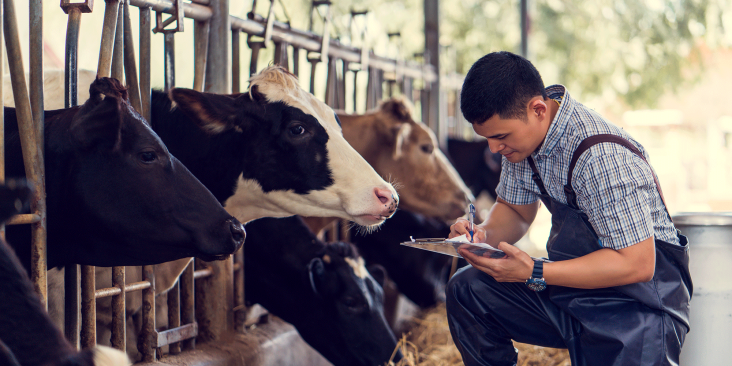This blog post was authored by Pedro Piris-Cabezas, Director of Sustainable International Transport & Lead Senior Economist at Environmental Defense Fund.
Although humans were biologically not built to take to the skies, innovation, invention and science led us to take flight. Through flight, we are connected to an international community. We can hold our loved ones on another continent. We can help move our global economy. We can build relationships across cultures.
But there is a price to the power of flight: Aviation is responsible for driving 3.5% of human-related climate change impacts. If it were a country, aviation would be one of the world’s top 10 greenhouse gas emitters in the world. Communities living near airports are also living with the brunt of air pollution from plane and vehicle traffic.
There is a solution, however, that can clean up the future of flight. By transitioning to high-integrity sustainable aviation fuel (SAF), we have an opportunity to reduce the aviation sector’s climate impact.
SAF is a fuel that can be produced from a variety of sources, or ‘feedstocks’, and mixed with conventional jet fuel to power planes. It can be produced from biofuels made from waste materials like used cooking oil or agricultural waste or from synthetic e-fuels made from surplus renewable electricity, water and direct air capture carbon monoxide. However, not all SAF is created equal, and only SAF produced with high integrity can help create a more sustainable future.
When SAF is produced with high integrity—meaning it credibly reduces emissions compared to traditional fossil jet fuel, adheres to strong environmental and social safeguards, and is accurately accounted for to avoid double counting of emissions reductions—it can drastically reduce the climate impact of flying.
But while high-integrity SAF has immense promise, there are many obstacles that block our journey to net zero aviation. For one, navigating the SAF landscape is complex.
It can be difficult for individual travelers, companies who rely on air transport, airlines, and policymakers seeking to identify what high integrity SAF is and how to move forward to reduce their emissions from flying. To help these stakeholders take smart, future-proof steps to advance high-integrity SAF, EDF has created a comprehensive guide to the new sustainable fuel.
After eight years of research and analysis, EDF published the High-Integrity SAF Handbook. The Handbook is a resource that can help fuel producers, airlines, policymakers, investors and companies understand and identify high-integrity SAF, create effective policy to support high-integrity SAF, and invest in and transition to high-integrity SAF. It provides clear guidance and insight on some of the thorniest obstacles that stand in the way of decarbonizing the way we fly.
Microsoft Corporation is one company serving as a model for how to support the advancement of SAF in its climate strategy. The company has been a longtime leader in advancing SAF and has contributed actively to the thinking behind this handbook through fruitful cooperation with EDF since 2019. In the Handbook’s preface, Microsoft’s sustainability team leaders outline how the company intends to support high-integrity SAF in its own efforts to become carbon negative by 2030.
“There is increased corporate momentum on carbon reduction commitments. But for all that energy to help achieve climate stability effectively and transparently, we need to accelerate the maturation and adoption of industry standards for carbon accounting,” said Lucas Joppa, Chief Environment Officer, and Julia Fidler, Group Sustainability Manager, Procurement, with Microsoft Corporation, in a foreword to the handbook. “This handbook provides a solid foundation to help build a resilient sustainability and accounting framework for sustainable aviation fuels that can guide investment decisions while avoiding stranded assets and unintended consequences on ecosystems and people.”
In addition to providing guidance for companies, the Handbook also identifies three key ways that policymakers in particular can chart a course for net zero aviation:
- Support the production of high-integrity SAF by ensuring only feedstocks with low indirect land-use change (ILUC) risk are eligible for financial support. A low ILUC risk means that producing the SAF feedstock does not divert edible crops or land used to grow food, and does not contribute to deforestation or habitat destruction. By focusing on SAF produced sustainably, policymakers can ensure we achieve the greatest climate benefit while protecting forests from being cleared for new agricultural land and supporting food security by ensuring food is not being diverted.
- Leverage financial support for high-integrity SAF that offers the highest emissions reductions. Not all SAF has the same potential to deliver strong climate benefits. Policymakers can and should ensure that investments are channeled to SAF that deliver the highest emissions reductions, as these will deliver the most cost-effective way forward.
- Support processes to avoid double counting and make sure emissions reductions from SAF are accurately accounted for. Policymakers can prepare to properly account for SAF use and prevent double counting by supporting the development of robust and transparent registries.
The obstacles to aviation decarbonization are challenging — but EDF’s new Handbook provides clear direction to benefit from high-integrity SAF’s climate promise. By again channeling our human innovation, invention and science, we can chart a path to cleaner, healthier ways to fly.
To read the High Integrity SAF Handbook, click here.










